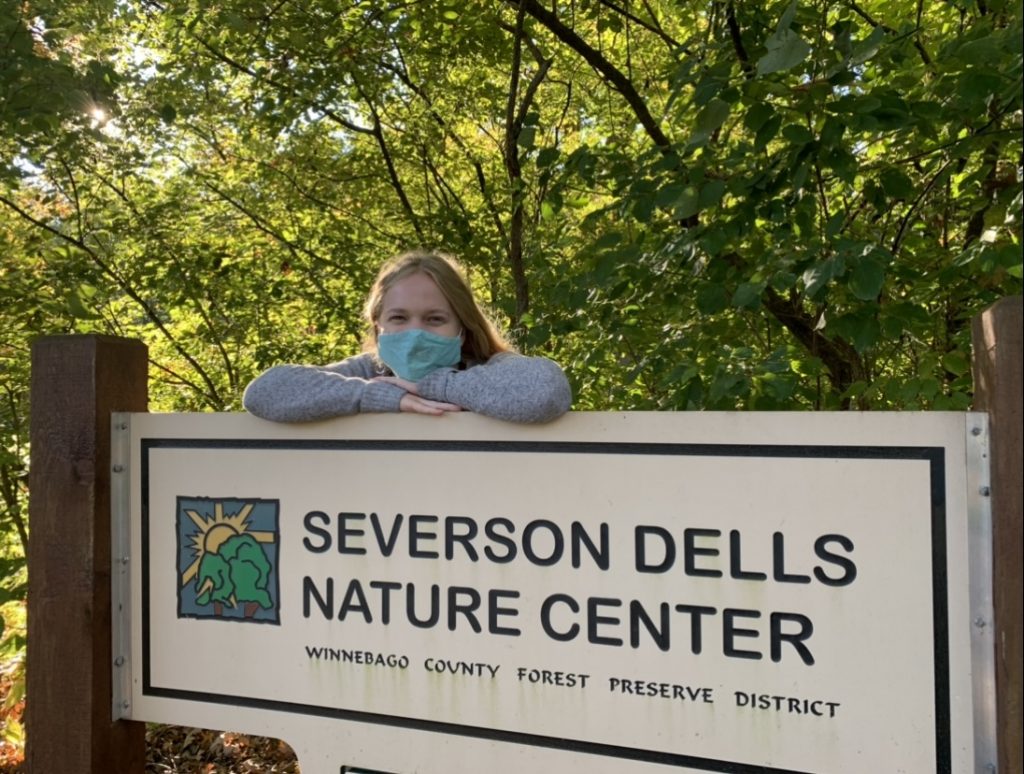Today, we get to meet with Andrea, an environmental educator/ naturalist at Severson Dells Nature Center. She discusses how important the future is and what her and her husband are trying to do to make a difference.
What does Sustainability mean to you?
“Sustainability, to me, is a lifestyle and a set of choices that we make to respect the earth and living in a way that we can continue living. It’s a concept that we care for the future both for the earth and our future children.
Why does it matter?
“In our present lives, it matters because it helps restore us to a sense of balance to a way we’re intended to live, but it also matters so much for the future because our future can be very grim or nonexistent without it.”
Are there any practices that you implement in your everyday life to make it more sustainable? If so, what are they?
“One thing my husband and I try to do is live pretty low waste. We’re still working on a lot of things, especially in our food and in our groceries since so much of it is plastic-packaged. As far as personal hygiene and lots of our cleaning, we’ve managed to make it pretty low to zero waste which we’re excited about. We also try to think about the food we eat. We’re trying to eat as plant-based as we can. It’s kind of a struggle for us, but we’re working on it. I think it’s important for people to know that you can struggle and it doesn’t have to be perfect, but any effort is good.”
Cutting meat out of your diet just one day a week can make a huge difference! It takes up to 460 gallons of water to make a quarter pound of beef. For chicken, it can take up to 500 gallons for just one pound.
How long have you been implementing these practices?
“Most of these practices are something that we picked up in college. It’s hard to make some of these lifestyle choices then you’re still under your parents’ roof because you have to get everyone on board for these decisions. Brendan and I learned about the zero waste movement in college and we’re really inspired to do that when we have control of our lives in the future.”
You mentioned cleaning, is there any certain brand you stick with?
“We haven’t settled on a brand yet. We’re tried a couple of Clean Cult [products] and some tablets for making hand soap or dish soap or things like that. We’re still experimenting and haven’t settled on one thing yet.”
Do you personally know of many people who have a similar practice or lifestyle as you?
“I think it depends on what community I’m looking at. I mean, as far as work peers, I have a lot of people who are trying to do that because I work at at nature, non-profit. It definitely depends on my sphere of live. I would say, probably a quarter of the people in my life take this pretty seriously. And I’d say another half try to make small changes. And then there’s a quarter that completely disregard it.”
What barriers do you think there are for individuals or society for not switching to more sustainable methods of living?
“I think a lot of the people I know are privileged where finances wouldn’t be the biggest issue, but definitely convenience and time in a world that pushes us to be so busy, it’s hard to make those time sacrifices to make those cleaner choices”

Leave a Reply